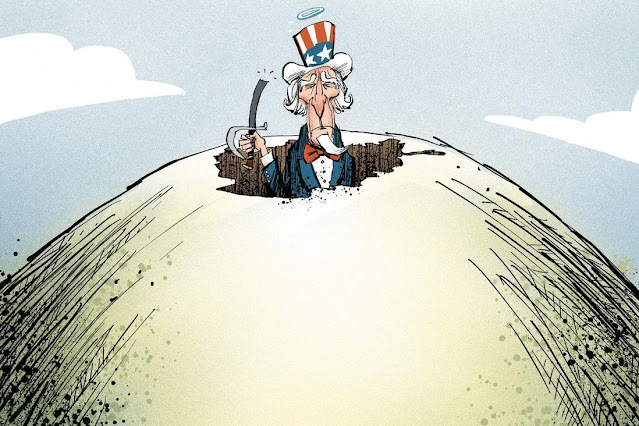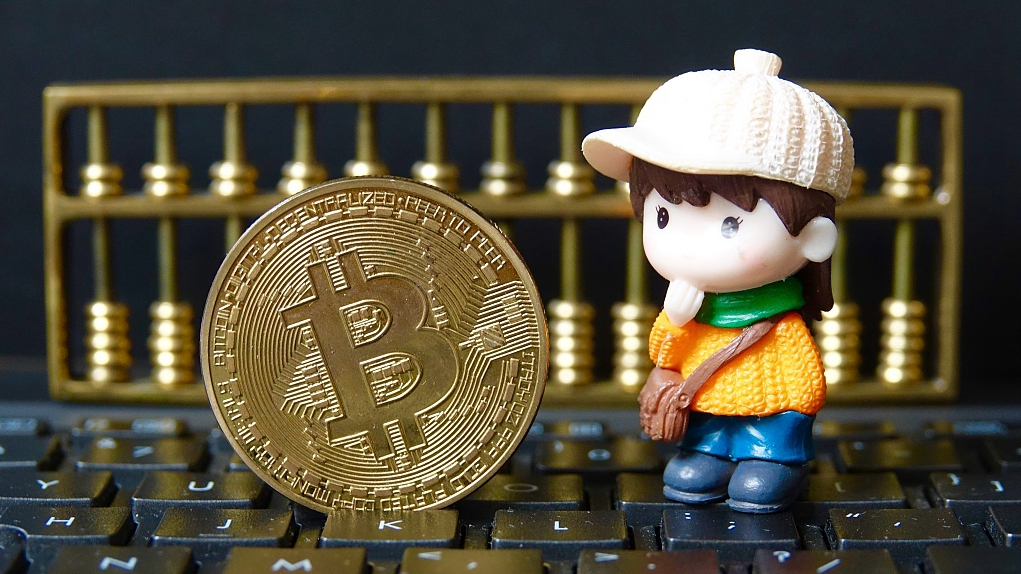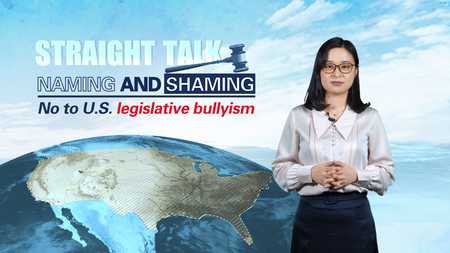Botched Afghan retreat reveals an America struggling to contain China
` Unable to better China in positive competition and with military options unfeasible, the US can only fall back on the ‘moral high ground’. But in its hasty Afghan withdrawal, to focus on China, the US risks losing even this -
Whether America’s withdrawal from Afghanistan marks the end of US world hegemony remains to be seen. President Joe Biden
has made it very clear that the United States withdrew to concentrate more on containing China’s rise – that is, extending its hegemony in a more effective and focused manner.
`
The US positions its relations with China within a “competition, cooperation and confrontation” formula. But as China’s vice-foreign minister, Xie Feng, said during talks with his US counterpart in Tianjin last month, the US is going all out to confront and contain China while demanding its cooperation whenever needed.
`
Unsurprisingly, when the Taliban swiftly took power in the Afghan capital of Kabul, US Secretary of State Antony Blinken immediately called on Chinese Foreign Minister Wang Yi to help with the situation.
`
China blames the US for thinking only about its own concerns: how can the US set out to harm or undermine China, and still demand its cooperation?
`
The US has fallen into a deep predicament in the face of a booming China. The American policy circle and social elite realise that, in many social, economic and governance areas – such as containing Covid-19, developing infrastructure, industrialisation, transiting to sustainable energy, achieving carbon neutrality and moving up to 5G communications – the US is either at a disadvantage or has no possibility of suppressing China right now.
https://youtu.be/LbRXFpkzlZs
`
US President Joe Biden vows China “will not win this race” amid electric vehicle rivalry
`
Back in April, Blinken admitted that the US had fallen behind China in the field of clean energy. In May, Biden said that while China’s annual research and development investment had risen from ninth in the world to first, the US had dropped from first to eighth.
`
These figures proved inaccurate, but Biden’s words reflect American leaders’ anxiety about being surpassed by China in science and technology.
`
Positive competition should be about substantially improving living standards and solving the problems facing humanity. Yet America’s real advantage over China boils down to its military power.
`
But, as the Saigon flashback during the withdrawal from Kabul shows, America’s ability even to achieve its goals with military power is also very limited.
https://youtu.be/v87fC61K5BY
` Former British prime minister Tony Blair criticises US withdrawal from Afghanistan Former British prime minister Tony Blair criticises US withdrawal from Afghanistan
`
Since the Soviet Union disintegrated, the US seems to have entered an era in which it relied on military power to act unilaterally and arbitrarily in the world. The bombing of Yugoslavia in 1999 by a US-led Nato force can be said to be a textbook case of the US exercising military power at will.
`
The 2001 invasion of Afghanistan went one step further. Ostensibly in retaliation for the September 11 attacks, it was in fact part of plans by some in the US to overthrow and rebuild regimes in Afghanistan, Iraq, Syria and Iran, one by one.
`
This has been disastrous for the countries and the world at large. In Afghanistan, more than 30,000 civilians are estimated to have been killed in the war, with another 60,000 injured and millions forced to flee as refugees.
`
The US invasion of Iraq in 2003 led to the deaths of an estimated 200,000 civilians or more – and a legacy of some 25 million landmines. The long-standing Syrian civil war, whose democratic forces were supported by the US, has left about 6 million Syrians displaced – the largest refugee crisis today.
https://youtu.be/fUSPxeXUs_8
` ‘I'm as old as the revolution’, Syrian boy turns 10 as nation marks decade of civil war ‘
`
But when the US comes up against another strong military power, it cannot choose the military option. This was seen in US inaction over Russian military operations against Georgia in 2008 and Ukraine in 2014.
`
Similarly, the US needs to avoid direct military conflict with China. While Beijing will not initiate military action, Washington would lose more than it could gain if it chose to go to war over Taiwan. Indeed, Beijing’s increasing defence capabilities are proving a deterrent for US military action against China and in the Asia-Pacific as a whole.
`
Even with the US gone from Afghanistan, the world still needs to ensure America only uses its military power for national defence.
`
Falling behind China in many spheres of competition, and with military options unfeasible, the US is left with its “moral high ground”. Hence, the Biden administration’s attempts to build an ideological alliance based on so-called human rights and democratic values.
https://youtu.be/AqlhWcV5pjs
` US warns American companies about operating in Hong Kong, sanctions 7 Chinese officials
`
The main aim of such an alliance is to attack China over democracy and minority rights in Hong Kong, Xinjiang and Taiwan. But, in practice, such pressure is difficult to exert. In a world where information about the real situation in China is freely available to the larger world, it is impossible to pull the wool over people’s eyes all the time.
`
Moreover, China has recently launched powerful counter-attacks against the US and other Western countries, exposing their ingrained racism and their dark histories of colonialism and genocide.
`
In any case, should the US choose to compete negatively with China – that is, not by improving its capabilities, setting a better example for the world, and providing more public goods, but instead by weakening, attacking and containing China to maintain its advantage – it will lose its global audience.
`
Afghanistan is an object lesson in how to ‘unbuild’ a country 16 Aug 2021

`
Over time, more countries and people will recognise America’s hypocrisy, double standards and weakness. The hurried retreat from Afghanistan has been costly in these terms for the US. Any perceived hypocrisy, or double standards in ideology and values will only damage America’s global leadership.
`
This is the “China dilemma” the US faces today – it finds itself losing in areas of positive competition, yet by resorting to negative competition, it can only harm itself.
`
For its part, China has made it clear it does not seek to defeat the US or overthrow the world order. To escape its China dilemma, the US needs to recognise the right of the Chinese people to live a better life, to modernise society, and to enjoy a safe and stable international environment.
By` Dr Zhengxu Wang who is distinguished professor at the School of International Relations and Public Affairs (SIRPA), Fudan University. Previously he served as senior fellow and acting director at the China Policy Institute, University of Nottingham, as well as research fellow at the East Asian Institute of the National University of Singapore.
China in top spot for research
BEIJING: China has overtaken the United States for the first time in terms of the average number of high-quality scientific papers produced from 2017 to 2019, according to a report by a Japanese government-linked institute this month.
High-quality papers typically refer to the top 10% of the most cited scientific papers in their respective field.
`
China topped the global ranking with an average of 40,219 such papers published annually in the three-year period, followed by the US with 37,124, and the United Kingdom with 8,687, according to Japanese Science and Technology Indicators 2021.
`
The report has been published annually since 1991 by the National Institute of Science and Technology Policy, which is affiliated with Japan’s Ministry of Education, Culture, Sports, Science and Technology. Each report is based on the three-year period that ended two years before.
`
The latest report found that US papers performed well in fields such as clinical medicine, basic life sciences, physics and geosciences from 2017 to 2019, while Chinese papers were most cited in the fields of materials science, chemistry, engineering, and computer sciences and mathematics.
`
In the 1990s, China used to rank 10th or lower among major science nations in the number of high-quality scientific papers, the report said.
`
However, it saw significant improvement in the following years, reaching second place globally by the late 2000s and holding onto that position until rising to the top between 2017 and 2019.
`
Two factors that have contributed to China’s rapid rise in science and technology output are its massive talent pool and research budget. In 2019, China had around 4.86 million full-time research and development personnel and research expenditure of over 2.2 trillion yuan, according to the National Bureau of Statistics.
`
China has also seen a steady rise in the annual number of new doctoral degree holders, reaching around 61,000 in 2019. That was second to the US, which had 90,000 new PhD recipients that year, the report said.
`
A more prestigious category is called highly-cited papers, which are studies that performed in the top 1% based on the number of citations received, according to Web of Science, a global academic literature and citation database.
`
From 2017 to 2019, the US published 4,413 highly-cited papers annually within the three-year period, followed by China with 4,046 and the UK with 970, the report said. — China Daily/ANN
`
`
Source link`
Chinese University Tops MIT in Engineering Rankings
China's leading spot in the race for technological innovation
US loses top spot to China in chemistry papers amid ...
Washington's increased sscrutiny of foreign ties in basic research.
China beats US to the top spot in filing international patents
China tells Blinken world must 'positively guide' Taliban - FMT
Related posts:
 Illustration: Stephen Case
Illustration: Stephen Case




























